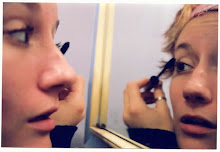Tuesday, December 25, 2007
Omaha
Here are some principles to keep in mind whenever you're playing Omaha. I'll keep it short and sweet, because there isn't really much that needs to be said about each of them. If anyone does want more in depth information about any of these, please leave me a comment and I will tell you whatever you need to know.1) If you're not drawing to the nuts, you're drawing dead. In Omaha you will more often then not be playing draws on the flop, and maybe even the turn. Rarely will you flop a made hand that is likely to still be the nuts by the end of the hand. So, when you are playing a draw, make sure you are drawing to the nuts, because if you are not, and it hits, you will often find yourself with the 2nd best hand.With players having 4 cards apiece, if you are drawing to a king-high flush, the odds are fairly good that someone else is drawing to an ace-high flush, and if your card hits, you will actually be dead in the pot. So make sure you are the one drawing to the nuts.2) One of the differences between a winning Omaha player and a losing Omaha player is a winning Omaha player can fold three-of-a-kind.Three of a kind is a drawing hand, not a made hand like in Hold'em. Trips and sets get more people in trouble playing omaha than anything, except for maybe Principle #1 above. TOAK (three-of a kind) is a VERY vulnerable hand. You are really just drawing to a full house, and if you don't make it and there are three to a straight or three to a flush on the board, you should probably fold. You will save yourself a LOT of money/chips.Winning players are the ones who know when their hand is vulnerable, and have the discipline to follow through with that knowledge and fold.3) There is NO SUCH THING as slow-playing in Omaha. This is something else that costs players a lot of pots. Thinking that their set is safe on a rainbow flop, many players try to get fancy and try to slow-play, allowing someone else to catch a better hand. Then, when they do try to speed up, they find themselves a big underdog. One card in Omaha can mean the difference between being a big favorite and a big underdog. You never know what card will give another player better trips in a situation like this, but if you bet your trips, you will probably push out someone who would have made a better set.If you have a hand, bet. That's all there is to it.4) Don't go overboard with betting. Just because you are allowed to bet the pot, does NOT mean that you should. Preflop, if you have a big hand, you might want to bet the pot to isolate/create value, but after the pot, take it easy. Evaluate the situation before going hell-bent for leather. Too many people just bet the pot at every opportunity and end up losing far more than they should. Understand the art of pot manipulation and take advantage of it. It will allow you to win more and lose less.5) Keep bluffing to a minimum. Omaha is not a bluffing game. This is another mistake that costs players a lot of chips. There are probably going to be several players in the pot, and you have no idea what the flop could have given one of them. There are INFREQUENT situations where a bluff might be appropriate, but they are few and far between, so don't bother.If you don't have a real hand, don't bet, you might run into someone who does.6) Look for reasons to fold, not reasons to call. It is human nature to try to find reasons to call bets, rather than fold. You must learn to override that impulse. A backdoor 10-high flush draw is not a reason to call, it is a reason to fold. If you can't immediately see a reason to call, don't look for one.So many people find excuses to stay in the pot, and then, when they make their excuse hand, they find themselves with the 2nd best hand, or worse. If it isn't obvious why you should call, you probably shouldn't.
Subscribe to:
Post Comments (Atom)

No comments:
Post a Comment